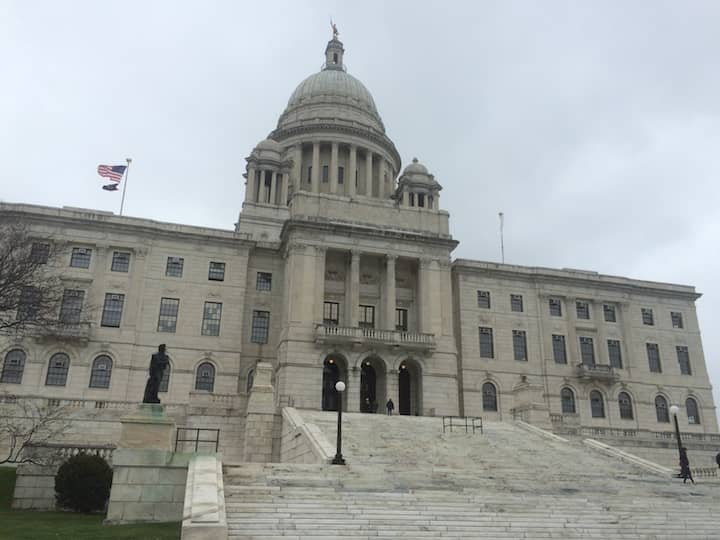
![[CREDIT: Rob Borkowski] The RI State House.](https://e8dgfhu6pow.exactdn.com/wp-content/uploads/2017/01/RI-State-House-2-350x263.jpg?strip=all&lossy=1&ssl=1&fit=350%2C263)
The bill (2017-H 5198) would permit the recipients of general or “Undesirable – Class I or II Homosexual” discharges to qualify for state veterans’ benefits when the discharge was based on the veteran’s sexual orientation.
The Department of Defense discharged about 17,000 service members under the separation category of homosexuality between 1980 and 1990, and 13,000 between 1994 and 2009, according to the Government Accountability Office (GAO).
The military’s Don’t Ask, Don’t Tell Policy, prohibiting harassment of gay or bisexual service members while barring open gay and bisexual conduct, was in effect from 1994 until its repeal in 2011, but homosexual behavior had been criminalized by the military since the 1920 revision of the Articles of War with a prohibition on consensual sodomy punishable by prison time, according to a report for The Center for the Study of Sexual Minorities in the Military, University of California at Santa Barbara.
Rhode Island holds a historic distinction in the military’s poor treatment of gay service members. In 1919, a US Navy investigation into the sexual conduct of gay sailors in Newport, RI tasked naval personnel with collecting direct evidence of gay sexual conduct between sailors and civilians, by participating.
Franklin Roosevelt, then Assistant Secretary of the Navy, had approved the investigation, but later denied any knowledge of how it was organized, according to “The Other Side of Silence,” by John Loughery on the New York Times website. The scandal resulted in the court-martial of 17 sailors, two of whom were dishonorably discharged, according to the wikipedia entry on the event.
“Today, gay members of the armed forces can serve proudly and openly since ‘Don’t Ask, Don’t Tell’ was repealed in 2011,” said Representative Vella-Wilkinson, a retired Navy officer. “But that doesn’t absolve us of our duty and obligation to those who served with honor before then. Many gay service members who were unceremoniously shown the door have been denied benefits for decades. And it’s time to right that wrong.”
Vella-Wilkinson said the military will upgrade some of the undesirable discharges under “Don’t Ask, Don’t Tell” to ‘honorable’ status as long as there were no instances of misconduct.
“But digging up decades-old records can be difficult and time-consuming — and it often takes years,” said Vella-Wilkinson, who serves on the House Veterans’ Affairs Committee. “This law will effectively redefine who a veteran is by acknowledging the ‘Undesirable – Class I or II Homosexual’ classification and extending state benefits to those who received such a discharge,” she said.
Vella-Wilkinson said she’ll also look at the possibility of amending the legislation to specifically state which discharge codes would be eligible, to make the matter less personally intrusive to veterans.
The bill, which is cosponsored by Representatives Robert A. Nardolillo III (R-Dist. 28, Coventry), Robert B. Lancia (R-Dist. 16, Cranston), Joseph J. Solomon Jr. (D-Dist. 22, Warwick), and Jean Philippe Barros (D-Dist. 59, Pawtucket), has been referred to the House Finance Committee.
This is a test
